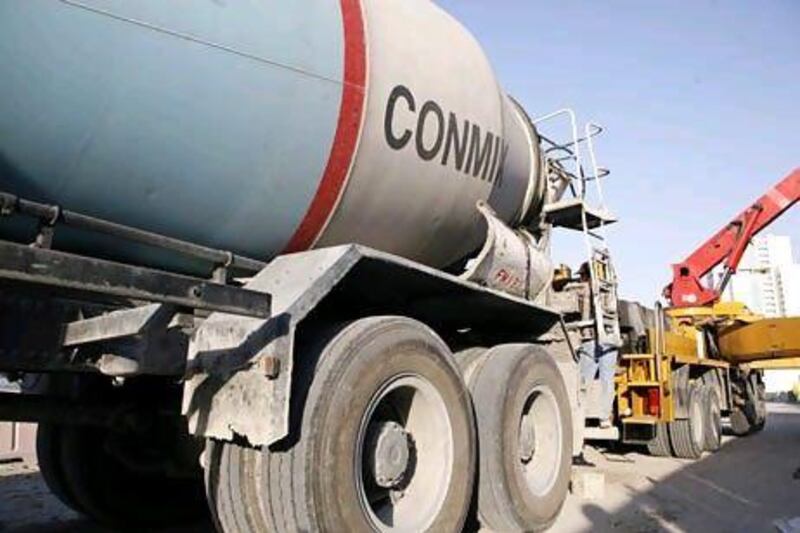Cement price wars in the UAE drove Ras Al Khaimah (RAK) Cement to a Dh20 million loss last year, the company said yesterday.
"Our numbers are quite simple," said Mike Richardson, the general manger of RAK Cement. "We make a million tonnes a year and if we sell it for Dh100 more per tonne, we would have made Dh100m - and that's the sort of profit we've made before."
The price of cement has plunged from its peak in the past couple of years with demand created during the building boom slowing as many projects in the country ground to a halt. This has resulted in oversupply in terms of cement production in the country.
"Everybody fights on the price and eventually the price goes right down on your cost and then you're not making anything," Mr Richardson said.
The company shares closed down 3.23 per cent at 60 fils on the Abu Dhabi Securities Exchange General Index yesterday. The company made a loss of Dh3.9m in 2010. Its board of directors recommended not paying a dividend to shareholders for last year. But the industry is now striving to offset its decline.
"What the cement industry as a whole has done is put up our prices in the local market," said Mr Richardson. "Now there's oversupply in the local market, so what we've done is we're exporting half of our volume and we've put up the price for the other half that is sold into the local market. There have been two price increases in the last two months. It was far too low.
"It was lower than the surrounding countries. It is now reaching a par with Oman prices and Saudi prices, so we're back at a more reasonable level," he said. "It's still nothing like the good days we've seen, but at least the industry can survive I think at these sort of prices."
If cement companies resist slashing their costs, they can keep their heads above water, he said.
"There are still other cement factories due to open this year and that will obviously add to the oversupply in the industry," said Mr Richardson. "But if everybody keeps the prices around where they are now, companies should at least break-even or make a small profit."





